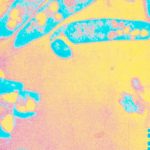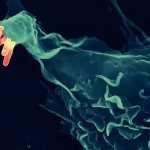Lien vers Pubmed [PMID] – 30053915
Lien DOI – 5910.1186/s13073-018-0568-8
Genome Med 2018 Jul; 10(1): 59
Humoral immune responses to infectious agents or vaccination vary substantially among individuals, and many of the factors responsible for this variability remain to be defined. Current evidence suggests that human genetic variation influences (i) serum immunoglobulin levels, (ii) seroconversion rates, and (iii) intensity of antigen-specific immune responses. Here, we evaluated the impact of intrinsic (age and sex), environmental, and genetic factors on the variability of humoral response to common pathogens and vaccines.We characterized the serological response to 15 antigens from common human pathogens or vaccines, in an age- and sex-stratified cohort of 1000 healthy individuals (Milieu Intérieur cohort). Using clinical-grade serological assays, we measured total IgA, IgE, IgG, and IgM levels, as well as qualitative (serostatus) and quantitative IgG responses to cytomegalovirus, Epstein-Barr virus, herpes simplex virus 1 and 2, varicella zoster virus, Helicobacter pylori, Toxoplasma gondii, influenza A virus, measles, mumps, rubella, and hepatitis B virus. Following genome-wide genotyping of single nucleotide polymorphisms and imputation, we examined associations between ~ 5 million genetic variants and antibody responses using single marker and gene burden tests.We identified age and sex as important determinants of humoral immunity, with older individuals and women having higher rates of seropositivity for most antigens. Genome-wide association studies revealed significant associations between variants in the human leukocyte antigen (HLA) class II region on chromosome 6 and anti-EBV and anti-rubella IgG levels. We used HLA imputation to fine map these associations to amino acid variants in the peptide-binding groove of HLA-DRβ1 and HLA-DPβ1, respectively. We also observed significant associations for total IgA levels with two loci on chromosome 2 and with specific KIR-HLA combinations.Using extensive serological testing and genome-wide association analyses in a well-characterized cohort of healthy individuals, we demonstrated that age, sex, and specific human genetic variants contribute to inter-individual variability in humoral immunity. By highlighting genes and pathways implicated in the normal antibody response to frequently encountered antigens, these findings provide a basis to better understand disease pathogenesis.ClinicalTrials.gov , NCT01699893.

















